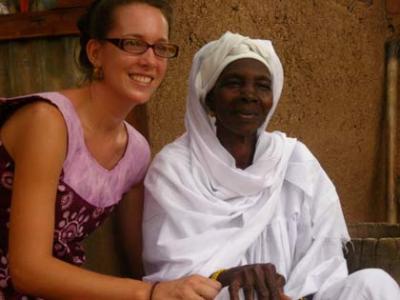At first, it seemed possible that what started as a military mutiny on March 22 might simply blow over. After a few days of sheltering in my apartment, I emerged to find Bamako, the capital of the West African nation of Mali, just as I had left it. Besides an underlying uncertainty over just exactly how Mali’s government would shape out, the mood was bright and the city would be as colorful as always. At work, a USAID youth-development project, most of my colleagues insisted the coup could be a positive step for Mali. They believed Amadou Toumani Touré, Mali’s ousted president, to be the head of a horribly corrupt government that was a democracy in name only.
But the military junta, a jumble of 30-something officers (the leader, Amadou Sanogo, has received military training in the U.S.), has not proven up to the task. In just a few weeks, Mali spiralled out of control. Taking advantage of the political instability in Bamako, the entire northern half of the country, an area that contains mostly desert in addition to the illustrious Tomboctou, was declared an independent nation by a mix of rebel groups. It has yet to be recognized by the international community. This new nation, Azawad, carries with it a host of its own problems: a mounting refugee crisis (refugees fleeing the area now exceed 300,000), rebel groups vying for control and a growing extremist Islamist threat.
And yet, when the U.S. embassy in Mali finally called for an authorized evacuation and Peace Corps made the decision to evacuate on April 3, I was far from ready to leave. I had a plan to stay in Mali for a year more. I had a life that I had worked hard to build in a country that I loved, surrounded by a community I had created and nurtured. And this too: I had my pride. The majority of the expatriate community in Bamako had already evacuated, but I had stayed behind, relieved that I had been spared evacuation thus far. Colleagues at work insisted that I was different, a true Malian. While I knew that the decision to evacuate was not under my control, I did want to believe in my colleagues’ idea of me and my position in Mali.
When I left Mali the first time in 2010, after two years serving as a Peace Corps volunteer in a rural village, I thought there would never be a harder goodbye. Being forced to evacuate from the country suddenly and with little chance to say goodbye, proved me wrong. I came home feeling like the life that I loved had been destroyed. Friends and family welcomed me home as if my vacation had been cut short. I did not know how to respond when they said “You must be so happy to be back!” I had not wanted to leave and I did not want to be home. The effects of Sanogo’s coup d’état on Mali are still uncertain, but what is clear is that it changed the path of my life. What remains uncertain is what its effects on Mali will be.
A transitional civilian government was put into place in Bamako on April 14, but Sanogo and the military still seem to be running the show. Many Malians still support Sanogo and feel that the coup offers a chance for a renewed government based on a true democracy. Soon, Mali’s transitional civilian government’s time will be up. They were allotted 40 days to set Mali on a new path, and Sanogo has said he intends to step back into power when those 40 days run out on May 20.
I check Twitter every morning for news on Mali. I call my Malian friends. Bamako is calm, they report, but everyone is tense. Instead of telling me that things are safe and there is no reason for me to leave, they tell me it is safer for me to be out of Mali right now. The optimism that Mali would quickly bounce back after the coup is no longer present.
For two months now, Mali has pushed through uncertainty, always hoping that tomorrow will bring more clarity. May 20 could bring an end to that uncertainty or signal that it will continue for months to come. I have the ability to leave Mali behind in a way, by pursuing a life in the U.S. I was forced to leave, but now I can make my own path: my future no longer depends on Mali. But millions of others’ lives do still revolve around how the political situation will develop.
Editor’s Note: An agreement was reached May 20 to keep the civilian government in place, but demonstrators stormed the presidential palace and the president was hospitalized.
